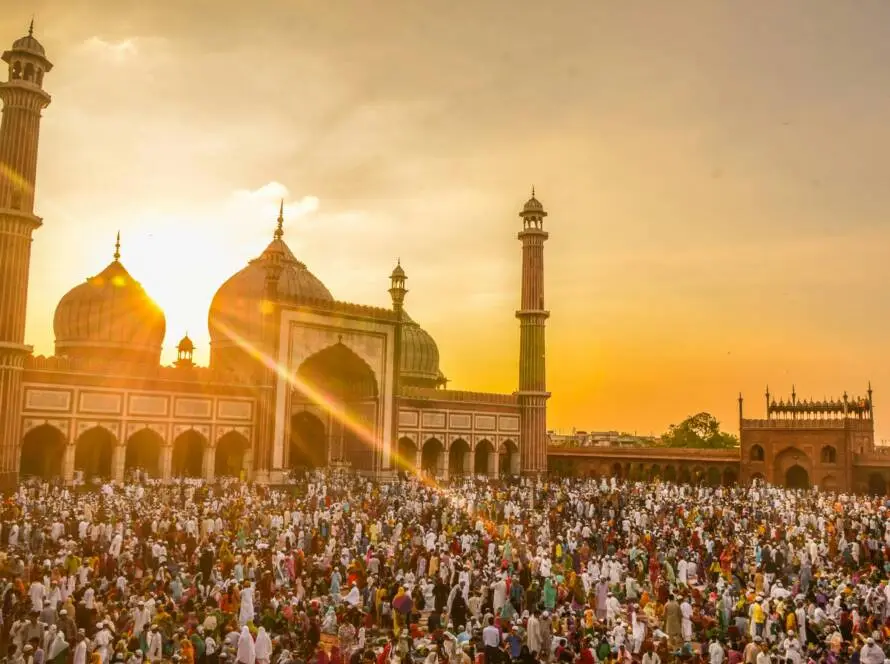Eid ul-Fitr, celebrated at the end of the holy month of Ramadan, is a significant Islamic holiday that marks the end of a month-long fast observed by Muslims worldwide. This fast is a time of spiritual reflection, self-discipline, and preparation for the upcoming holy month of Ramadan. The celebration of Eid ul-Fitr signifies the end of the fast and is a time of joy, thanksgiving, and forgiveness. It is a time for Muslims to express gratitude to Allah for His blessings and for the strength to observe the fast. It is also a time for forgiveness and reconciliation, for strengthening family and community ties, and for performing acts of charity and kindness towards those in need.
The date of Eid ul-Fitr changes every year on the Gregorian calendar due to the difference in the Islamic lunar calendar and the Gregorian solar calendar. This results in the date of Eid ul-Fitr moving from one year to the next.
Eid ul-Fitr is celebrated with various customs and traditions that vary across different cultures and regions. For example, in Afghanistan, the celebration involves special festivities for children and the youngest members of families, with activities such as cleaning homes, buying new clothes, and preparing traditional meals like Bolani. The day of Eid al-Fitr in Afghanistan is marked by offering Eid prayers, greeting family and friends with “Eid Mubarak,” and giving gifts to children. It is also common to visit families and friends, which may be difficult to do at other times of the year.
Eid ul-Fitr is not only a time of celebration but also a time for Muslims to express gratitude to Allah for His blessings and for the strength to observe the fast. It is a time for forgiveness and reconciliation, for strengthening family and community ties, and for performing acts of charity and kindness towards those in need. The celebration may last for up to three days, with Muslims around the world participating in prayer, feasting, and festivities that bring people together and reinforce the bonds of brotherhood and sisterhood that are at the heart of Islam.
The spiritual meaning of Eid al-Fitr is seen as a celebration of Allah’s provision of strength and endurance. Amid the reflection and rejoicing, Eid al-Fitr is a time for charity, known as Zakat al-Fitr. Eid is meant to be a time of joy and blessing for the entire Muslim community and a time for distributing one’s wealth. Charity to the poor is a highly emphasized value in Islam.
In summary, Eid ul-Fitr is a time of joy, thanksgiving, and forgiveness, marking the end of the holy month of Ramadan. It is a time for Muslims to express gratitude to Allah, for the strength to observe the fast, and for the opportunity to perform acts of charity and kindness. The celebration of Eid ul-Fitr is a significant event in the Islamic calendar, celebrated with various customs and traditions that vary across different cultures and regions.


